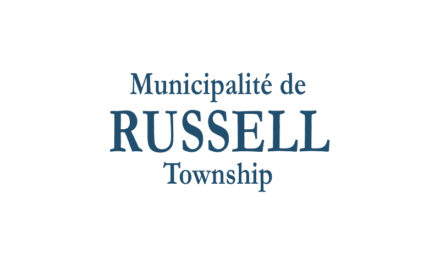CHESTERVILLE – Way back when the internet was fresh and new, many “informed” people thought it was a flash in the pan, a fad that would shortly disappear like so many other fads. The people who controlled the big newspaper chains believed this as well, so much so that they didn’t take advantage of the “networks” they currently had in place to move into the 21st century and expand local advertising into the global marketplace.
What happened because of these misguided business decisions is now history. A great many storied and profitable newspapers died off, but the adage that only the strong survive remains true. Not surprisingly, the strong turned out to be, in many cases, community newspapers, with their loyal base of local support.
By combining their existing print publication along with a developing online and social media presence, community newspapers continued to flourish. Recent changes, however, will make that slightly more difficult. The passage of Bill C-18 (The Online News Act) which requires the social media giants to pay to use the news’ content generated by Canadian journalists. The bill, for example requires Google and Meta (Facebook) to pay news’ content producers for the news gathered across online platforms; the problem is that these online platforms are profiting by selling advertising, while at the same time using news’ content without providing any compensation. They have been doing so for about 17 years.
Now, given the responsibility of funding the collection and creation of the news’ content they distribute, they have opted to block news’ content from Canadian creators.
Both Google and Meta are currently testing how to block news’ content and what that will look like. According to the Ontario Community Newspaper Association (OCNA) some members have reported that their Facebook and Instagram accounts are being blocked as retaliation for Bill C-18. The OCNA will be tracking actions like this to see how quickly it spreads.
In 1964 Canadian media theorist Marshall McLuhan coined the phrase “The medium is the message.” Through the changes created through Bill C-18, The Record plans on ensuring that the message remains, regardless of the medium.
You can start by visiting The Record’s website at: www.therecordnews.ca. Each week you can find a selection of articles for free, but if you want to read the entire newspaper you can get an electronic copy at www.therecordnews.ca/membership-join for only $45 per year. This contains all the same stories that you would have previously seen on social media or Google, only without the middleman. And just like Facebook, if you check back often, you’ll find new content waiting for you to read.
You can also sign-up for The Record’s email newsletter. Each week the news’ team will send you the latest local news, information, and goings-on that you can read at your leisure. You can register by going to www.therecordnews.ca/newsletter.
And of course, you can always get your news from the print edition, which is delivered to you each week. If you’re not a subscriber, you can get the paper for only $45 per year by calling 613-448-2321 or at www.therecordnews.ca/membership-join.
We look forward to being your source for local news.

Terry Tinkess is a professional photographer, educator and journalist. He has been making a living with a camera and keyboard since 1999 and has been featured in such publications as The Ottawa Citizen, Cornwall Standard Freeholder, The Globe and Mail, The Miami Herald, Ottawa Construction News, The Ontario Construction Report, Ontario Home Builder Magazine, Reed Construction Data, Canadian Potato Business and most recently, The Record and Eastern Ontario AgriNews. Terry lives in Ingleside, Ontario with his wife Brenda, Mia the anxious Pittie and cats Wally and Chubbers.











